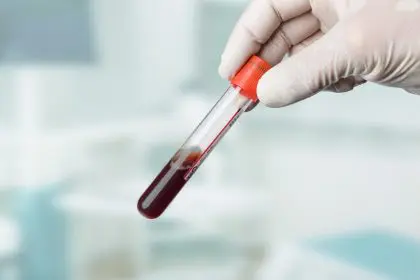Forget everything you thought you knew about getting older. Scientists just dropped a mind-blowing discovery that’s making everyone rethink aging. Turns out, your body doesn’t just gradually decline like an iPhone battery – it hits specific turning points that change everything about how you function.
Here’s exactly what happens to your body at these crucial ages
Let’s break down what happens when your body hits these aging milestones. At these specific points, your molecular makeup goes through more changes than a teenager‘s social media profile. A massive study tracking over 135,000 molecules and microbes in people aged 25 to 75 just revealed some pretty wild stuff about how we age.
- Your coffee hits different in your 40s because your caffeine metabolism changes
- That glass of wine might feel stronger since alcohol processing slows down
- Your cardiovascular system goes through major molecular shifts
- Your immune system gets a complete reprogramming
- Your skin and muscle health take an unexpected turn in your 60s
- Your carbohydrate processing system gets a total makeover
- Your lipid metabolism decides to switch things up
- Your kidney function experiences significant changes
The mid-40s shocker nobody saw coming
Remember how you thought you’d gracefully cruise through your 40s? Well, Stanford University researchers just found out that your body has other plans. They discovered that your mid-40s mark a massive molecular pivot point that affects everything from how you process your morning coffee to how your heart functions.
Why your 60s aren’t what you expected
Just when you think you’ve figured out all your body’s quirks from your 40s, your 60s show up with a whole new set of surprises. The research shows that your body goes through another major transformation, especially in how it handles carbohydrates and maintains your immune system. It’s like getting a software update you never asked for.
The science behind these dramatic changes
The research team didn’t just randomly stumble upon these findings. They meticulously tracked 108 people over several years, collecting everything from blood to stool samples. This isn’t just about wrinkles and gray hair – we’re talking about deep molecular changes that affect how your entire body functions.
What this means for your daily routine
Now that we know about these aging peaks, it’s time to get smart about managing them. You might need to rethink your daily habits, like your caffeine intake or exercise routine. It’s not about fighting these changes – it’s about working with them to keep your body running at its best.
The lifestyle changes that actually make a difference
While you can’t stop these molecular changes, you can definitely prepare for them. Scientists recommend staying active, but not just any movement will do. You need targeted exercise that supports your body through these transitions. Think of it as preparing your body for these biological plot twists.
Why timing matters more than we thought
Understanding these aging peaks helps us get ahead of potential health issues. Instead of waiting for problems to show up, we can start making changes before these molecular shifts hit. It’s like getting a heads-up about what your body needs before it starts complaining.
The future of aging research
This breakthrough is just the beginning. Scientists are already diving deeper into why these specific ages trigger such dramatic changes. The more we understand about these aging peaks, the better equipped we’ll be to handle them. Think of it as finally getting the user manual for your body – just a few decades late.
This research isn’t just another study gathering dust in some scientific journal – it’s a wake-up call about how our bodies actually age. By understanding these crucial turning points, we can better prepare for them and potentially minimize their impact on our health. The secret isn’t in fighting these changes but in working with them to maintain our health through each stage of life.













